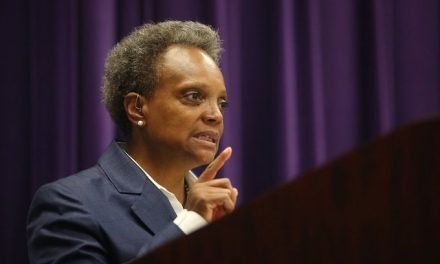The six-member City Council of Hamtramck will consist of all Muslims starting in January, another historic first for the metro Detroit city known for its sizable immigrant population.
The newly elected mayor, Amer Ghalib, 42, is also Muslim, which means all of the city’s elected officials will be Muslim.
In Tuesday’s election, three candidates who are all Muslim were elected and will join three current city council members who are also Muslim. Five of them are immigrants and one is a convert to Islam with ancestral roots in eastern Europe.
Advocates with Muslim groups and experts say they do not know of any other city council in the history of the U.S. that is entirely Muslim.
Council members told the Free Press that religion will not play a role in their decisions.
“It’s important to remember that although we all happen to be practicing Muslims, we are elected through the processes set forth by the United States, Michigan, Wayne County, and Hamtramck,” Amanda Jaczkowski, one of the three newly elected Muslims on the council, told the Free Press. “We will all take an oath … to protect the Constitution of the United States, and that includes the concept of separation of church and state. I believe strongly in that separation, and although I will bring the Islamic values of honesty and integrity to the table, the policies that I promote and affirm will be what is best for all people of Hamtramck.”
Current city councilman Mohammed Hassan stressed the same message.
“Religion is not inside the (City Hall) building,” Hassan said. “It’s outside in the mosque and temple and the church. Not in City Hall.”
Hassan added that “nothing will change in council, we remain the same.”
“We respect all the religions,” Hassan said. “Inside the City Hall, we are responsible for the residents … we do our responsibility by the book.”
Khalil Refai, one of the three council candidates elected on Tuesday, was the top vote-getter.
Refai said he will be focused on policy issues and respects the religious diversity of the city, which was once known as a Polish Catholic enclave.
“I ran for office to solve everyday issues facing our community,” Refai said. “Fixing our sewers and lead pipes, finding creative ways to increase city revenue, and creating a more transparent, inclusive city hall are all important issues we heard during the campaign. I am looking forward to solving these issues with my colleagues. I am a proud Hamtramckan, and I love living in a community that has people with many different religious backgrounds.”
The percentage of Muslim residents in Hamtramck is not clear since the U.S. Census does not ask about religion.
But estimates based on Census ancestry data suggest that about half are Muslim. About 25% of the city is of Arab descent, most of them Yemeni, and an additional 27% is of Asian ancestry, most of them Bangladeshi, according to 2019 Census data. Almost all Yemenis are Muslim, while Bangladeshi Americans in Hamtramck are a mix of Muslim, Hindu, Buddhist or Christian.
There are also some Bosnian Muslims and African American Muslims living in Hamtramck.
Out of the six council members, three will be of Yemeni descent, two of Bangladeshi descent, and one who is white.
Hamtramck drew attention in 2015 when it elected its first Muslim-majority city council. The city’s population has spiked 27% over the past decade.
Hamtramck has a weak mayor system of government, where the city manager and other City Hall staff, most of whom are not Muslim, run the daily operations. The mayor’s annual salary is $6,372.
In both Dearborn and Dearborn Heights, the new city councils will each have three members who are Muslim. Voters in Dearborn, Dearborn Heights and Hamtramck all elected Muslim mayors for the first time.
Seeking a fifth four-year term, Hamtramck Mayor Karen Majewski lost Tuesday to challenger Ghalib, a health care worker, who won 68.5% to 31.5%. Four years ago, Majewski had 30 more percentage points, defeating Hassan 61% to 38%. In 2017, Majewski got the support of some Yemeni-Americans to win, but this time, the community came out for Ghalib, an immigrant from Yemen.
The mayor in Hamtramck has always been Polish-American Catholic since it became incorporated as a city 100 years ago. But today, the city is only 6.8% Polish, according to 2019 Census data.
Majewski said she hopes to work with Ghalib on the transition. She said that people should not be afraid of different faiths and urged people not to make generalizations about Islam.
“I’ve always cautioned people to not think about Islam as a monolith,” Majewski said. “Remember that people come from different traditions within a shared religion. Individuals are different too, they come with different experiences, different interpretations of their faith and different priorities. I would always caution people against creating a monolith in their minds about any religion.”
During the campaign, Majewski and Ghalib clashed on LGBTQ issues: she favors flying the Pride LGBTQ flag outside City Hall, which he opposed. Ghalib told the Free Press last month his Islamic faith does not mean he opposes any group.
“People think because of my background and my religious beliefs that I will be anti-LGBT or something, but we are in America,” he said.
Majewski said she’s trying to reach out to Ghalib to help him learn about the role of mayor and also to introduce him to communities in Hamtramck he may not be familiar with.
Sally Howell, director of the Center for Arab American Studies and associate professor of history at University of Michigan-Dearborn, is an expert on the history of Muslims in the U.S. She said she hasn’t heard of any other U.S. city council in history with all Muslims as members.
Howell said the all-Muslim council in Hamtramck is “another barrier broken.”
“It reflects the population” changes in Hamtramck, she said. “And it also reflects the diversity of the Muslim community because you’ve got a white convert to Islam, you’ve got Muslims from the Bangladeshi community and you’ve got Yemeni Muslims.”
Rummi Khan, chief operating officer for the Muslim Public Affairs Council, said: “We are pleased to see our community vibrantly engaged in the foundation of American democracy, our elections. This representation is a wonderful step toward realizing the promise of a government for the people, of the people, by the people for all Americans.”
Bill Meyer, a longtime activist in Hamtramck who has advocated for diversity and pluralism, applauded the election results, saying that racism by city officials has “prevented unified action in addressing city issues.”
“The new mayor has major challenges ahead in a city has been plagued with serious infrastructure problems, including flooding, lead in the water and crumbling streets and alleys,” Meyer said. “In addition, police and fire pensions have skyrocketed beyond the ability of this city, one of the poorest in Michigan, to afford.”
Adam Albarmaki, an immigrant from Yemen who is one of the newly elected members of the city council, said he will not favor one group.
“I owe it to the people of Hamtramck and my loyalty to them will remain intact,” he said. “Make no mistake, I do not represent the interest of a certain group over another. I will work diligently to ensure that the best interest of Hamtramkans is attained.”
Niraj Warikoo
©2021 www.freep.com. Visit freep.com. Distributed by Tribune Content Agency, LLC.
—-
This content is published through a licensing agreement with Acquire Media using its NewsEdge technology.



















I have to wonder , just when will Sharia Law be started?
The way Detroistan is going, within 5 years.
I predict much sooner, like right away. And by the way, it doesn’t matter what those new muslim leaders say or deny. They will lie because it is in their Koran. They pretend their religion will stay in the Mosque. That is a lie.
THEY ARE ordered to lie to “unbelievers’ by their damnable satanic book.
It’s happening right now Ituser… Most of Hamtramck follow the guide lines of sharia outside of the enforced law. At one time that city was a proud community of European immigrants (who came here legally) mainly Polish who keep a well organized, clean and safe place to live. Everybody looked out for one another and lived in harmony… always welcoming of visitors. Now it looks like down town Baghdad after Bush W got done with it… call to prayer 5 times a day blaring in the street. The crime makes southside Chicago look like little girl slap fight. The last time I was there was to visit a friend about 4 years ago… it brought tears to eyes… my friend was not muslim… He was killed by a hit and run driver that left the seen… never found. I’m sure it …WASN’T… racism.
RIP to your friend.
***** that happened to him
God will sort these out on judgement day and there will only be one who decides whether they declared Jesus Christ the Son of God and the Lord and Savior.
Well, TimesUp, it won’t be any muslims, we know that!
This is not good at all. Muslims do not belong in leadership positions in this country. We have two in Congress who are nothing but loudmouth activists. This country was founded upon Judeo-Christian principles and anyone seeking public office should adhere to those principles.
THEY DO NOT belong in this nation, PERIOD… let alone in govt office.
I agree… it’s the only “religion” who’s doctrine does not fit or follow under the Constitution and laws of this country…. NO EXCEPTION!
To me its Not even a religion. ITS A POLITICAL AGENDA masquerading as a religion..
thanks to barry sotero we now have a muslim problem.
Unfortunately, we had a mudslime problem, LONG BEFORE He got into office. He just exasperated it.
We have had a mudslime problem since the founding of our nation. The very first war we had to fight was in Tripoli against the muslims, or as they were called then, Mohammedans. Thomas Jefferson knew the danger from those people but we have stupid, stupid non-leaders now who hate the Christian/Jews God and welcome the pagan god, Allah, into our country. When mudslimes take over anywhere, then Sharia will follow. So good luck, Detroit. You are screwed.
Pity there’s no way to just WALL THEM UP IN Detroit, so we can keep the rot THERE only…..
I hope they live up to that. My husband served in the Middle East and was chewed out by a Muslim friend because he was not a regular church attendee. He told him to get off his butt and go to church.
I DOUBT they will. Every nation i’ve lived in, MUSLIMS Focused only on fellow muslims. NEVER ON ANYONE ELSE< unless it was to BULLY them into 'obeying islam'
Where did all the Catholic Polish go?
Most of them have kept the family unit together through faith… worked very hard …sacrificed… paid into the system with their hard earned sweat equity (some with their lives in war), put their children through college that moved out and advance their own families to bigger and better things… as this country has been designed … if you follow that doctrine you can not fail. They themselves have since died. They were a large part of the greatest generation the world has …EVER… seen. The down fall started when rich muslims began buying up houses with pennies on the dollar using federal taxpayer grants… then began moving their families from the middle east in.
Detroit is a manure hole anyway. So just keep being stupid and run off the rest of the big businesses there that pay the big union wages. The red states will welcome big factories run by GM, Ford, and Chrysler.
What could possibly go wrong with this ??? What do you expect them to say ? Yes, we will immediately begin to install sharia law and justice ? I am guessing they all have a (d) beside their name. And religion will have everything to do with their decisions. If one of them gets a little too American, they will be taken care of. detroit is already one of the top 5 worst hell holes to live in and all because of the far left liberal leadership it’s had for many decades and now even further outside American ways. Watch the news… this will end up badly in about every way possible. About the only truth I see is that they won at the ballot box and that is democracy. And that is imperfect and they will show why. Look at the president joe biteme and how’s that working out ? Both are disasters and time will show that for sure. Watch them change the name pretty soon… allahville ???
I wonder, how many LGBTQ pride parades, will ever happen in michigan now!
“Hassan added that “nothing will change in council, we remain the same.” ”
In the words of the great philosopher Nipsey Russel “RIIIIGGGHHHTTT!”
I wonder, how soon it will be, before the opening phrase to that council meeting is ALLUAH ACKBAR!
Muslims do not belong in the USA. They will not assimilate as immigrants are required. We have seen first hand what Muslims will do. Not just 9/11/2001 but Fort Hood, Florida and others. It doesn’t take a PHD. in history to plainly see that they are not fit to have US citizenship according to their beliefs. The US welcomes legal immigrants but they must follow the laws of coming to this country!
If any or all these Muslims are devout, they believe their religious law trumps man-written law i.e. the US Constitution. This should disqualify them from any political office in America because they follow Islamic law unlike 98% of Americans.
Many a muslim has turned to Jesus Christ just because of the pure hate they were brought up on. Thank God the Father and his Son Jesus Christ! The one and only path to eternal peace.
Just look at London,Paris and parts of Belgium and parts of Australia were a large group of Muslims live. No go zones for Christians citizens. Assaults on women who don’t dress Modestly . Assaults on gays. Don my skin to America
Exactamundo! NEVER ever let them in, in the first place.. THEN YOU won’t have to deal with malarkey like that.